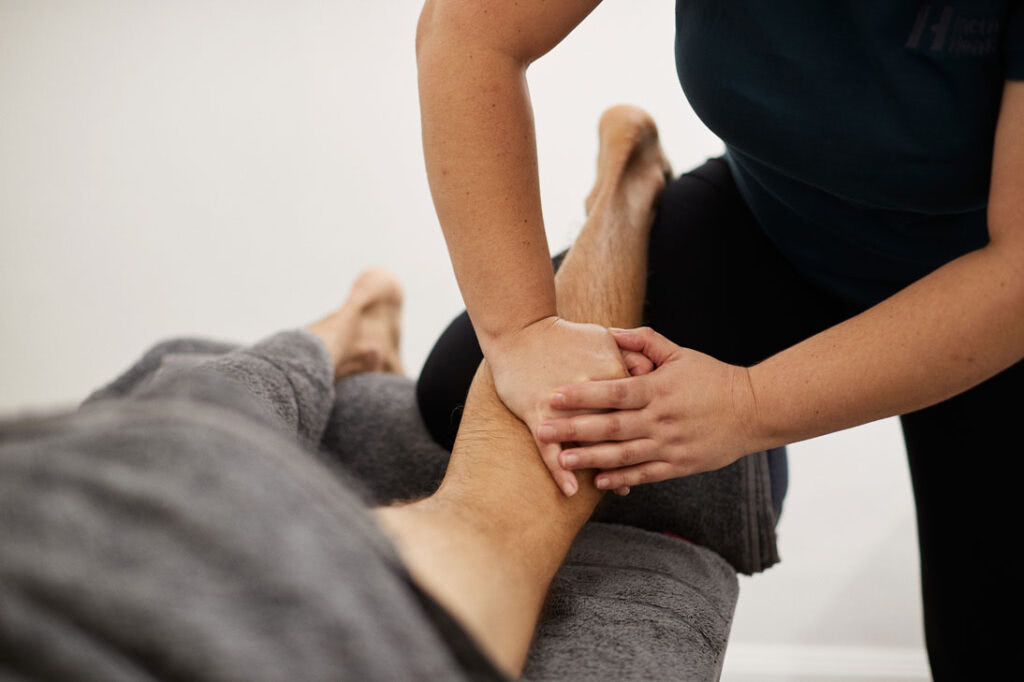Deep tissue massage focuses on the deeper layers of your muscle tissue.
It aims to release chronic patterns of tension in your body through slow strokes and deep finger pressure on the contracted areas.
This could either follow or cross the fibres of your muscles, tendons and fascia
What is Deep Tissue Massage Therapy?
Deep Tissue Massage is the application of firm and deep pressure for the treatment of the muscles, tendons, ligaments and connective tissues of the body to assist in rehabilitation, pain and injury management.
Our Approach to Deep Tissue Massage Therapy
All of our Deep Tissue Massage Therapists at Incline Health hold a Diploma in Remedial Massage Therapy and have extensive experience treating a broad range of injuries and conditions in both clinical and sports environments. Our Deep Tissue Massage Therapists understand that each patient’s needs are unique, therefore all treatments include a thorough consultation and assessment, and evidence-based techniques selected and applied in a way that suits the patient. If necessary, our Massage Therapists may cross-reference with our Chiropractors, Physiotherapist or Pilates Instructors to maximise the efficiency of the treatment.
Conditions We Treat with Deep Tissue Massage
Deep Tissue Massage Therapy is an excellent treatment for a broad spectrum of conditions including:
- Muscle tension
- Sprains, strains and other soft tissue injuries
- Headaches and migraines
- Lower back pain
- Frozen shoulder
- Carpal tunnel
- Tennis/golfers elbow
- Sciatica
- Compartment syndrome
- Plantar fasciitis
- Delayed onset muscle soreness (DOMS)
- Stress, anxiety and depression
Why Choose Deep Tissue Massage?
Along with the immediate benefit of feeling relaxed and calm, some of the physical benefits of Deep Tissue Massage Therapy include:
- Reduced muscle tension
- Increased joint mobility
- Improved posture
- Increased flexibility
- Improved circulation
- Improved recovery of soft tissue injuries
- Improved athletic performance

What to Expect From Your Deep Tissue Massage Therapy Appointment
At the start of your appointment your Massage Therapist will ask a series of questions and conduct several tests to evaluate your condition and treatment needs. During your treatment your Therapist will use a variety of techniques including:
- Soft tissue manipulation (gliding, kneading, compressions)
- Myofascial release
- Trigger point therapy
- Proprioceptive neuromuscular facilitation
- Muscle energy techniques
- Deep tissue
- Stretching
- Acupressure
- Cupping
- Dry needling
At the end of your treatment your Massage Therapist will prescribed you with take home exercises to promote muscle strength and function.
Our Four Pillars of Practice
customised
care

home
care

disciplinary
medicine

into
practice



